The American Civil War
1/55
There's no tags or description
Looks like no tags are added yet.
Name | Mastery | Learn | Test | Matching | Spaced |
|---|
No study sessions yet.
56 Terms
How did Harriet Beecher Stowe play a role in the Civil War?
She wrote the book, “Uncle Tom’s Cabin'“, which opened the eyes of many Northerners to the horrific conditions of slavery.
Who was the leading general of the Confederacy?
Robert E. Lee
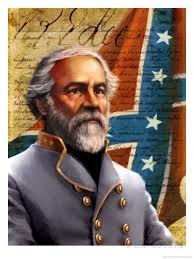
What was the capital city of the Confederate States of America?
Richmond, Virginia
Who was the conductor of the Underground Railroad? She returned to the South 19 times to help slaves escape.
Harriet Tubman
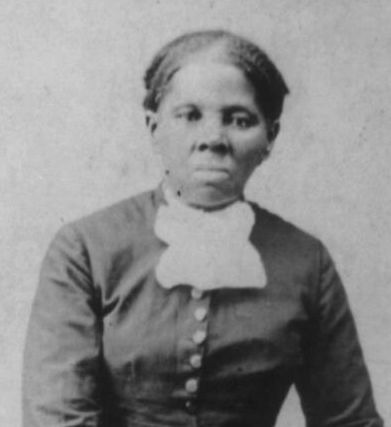
What role did John Brown play in the Civil War?
He was an abolitionist with a STRONG hatred for slavery. He believed that violence was necessary to end slavery. He and his followers attempted to raid a federal arsenal in Harpers Ferry, Virginia, but was caught. He was hanged for treason.
Where did the South surrender (April 9, 1865) essentially ending the Civil War.
Appomattox Courthouse (Southern Virginia)
What was the Fred Scott decision (Supreme Court)
He was a slave in Missouri. He and his slave owner moved to Illinois (free state) for a while before returning to Missouri Later his slave owner died. He sued for his freedom, claiming he should be free since he lived in a free state for a while. The Supreme Court ruled that he was not a citizen, rather, a piece of property. Therefore, he had no right to even file the lawsuit. Freedom denied.
Which state was the first state to secede from the Union?
South Carolina
What was the first battle of the Civil War? It took place of the coast of Charleston, South Carolina (April 12, 1861)
Ft. Sumter
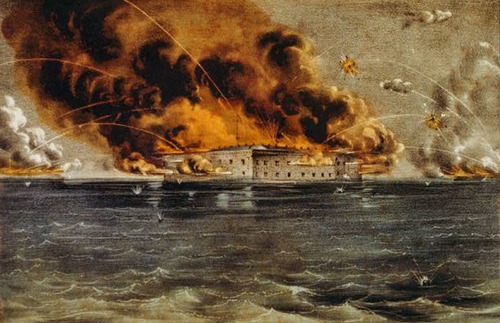
This battle took place in the state of Mississippi May-July of 1863. The Union (North) won, which meant the Union (North) gained full control of the Mississippi River.
Battle of Vicksburg
Why did the Southerners need slavery more than the Northerners needed slavery?
The economy of the South was based on farming, which requires more labor, while the economy of the north was industrial.
How many people died during the Civil War?
About 950,000 (almost a million)
Who was the Speaker of the House (from Kentucky) who proposed the Missouri Compromise.
Henry Clay
Why was Kansas nicknamed, “Bleeding Kansas”?
The Kansas and Nebraska territories were given the power to vote whether to have slavery or not once they became states. This caused fighting between pro-slavery and anti-slavery forces. It was a miniature civil war before the real Civil War.
What was the main goal of abolitionists?
To get rid of slavery.
Who was William Lloyd Garrison?
An abolitionists who started the newspaper called “The Liberator”
What agricultural invention, designed to increase production, had the effect of increasing production, had the effect of increasing the number of slaves needed for labor in the Deep South?
The Cotton Gin
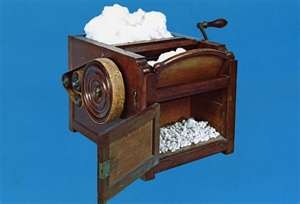
What was the significance of the Seneca Falls convention of 1848?
It was an important step in the women’s rights movement. Though this issue was not a direct cause of the Civil War, the Social Reform Movement (and Second Great Awakening) caused many Americans to question things (like slavery).
Who was Frederick Douglas?
An escaped slave from Maryland who led the abolitionists movement and was the editor of the newspaper, “The North Star”
When was President Lincoln assassinated?
April 14, 1865
After the Battle of Antietam, President Lincoln gave the South an ultimatum. Rejoin the U.S. or your slaves will be emancipated. When did he issue the Emancipation Proclamation?
September 22, 1862
When did South Carolina secede from the U.S.?
December 20, 1860
When did General Lee surrender to General Grant?
April 9, 1865
The Battle of Gettysburg was “turning point” of the war. When did this battle begin?
July 1, 1863
The Civil War took place between ______ and _______
1861-1865
Who was Clara Barton?
She helped wounded soldiers during the war, proving women could be part of the war effort. Later (1881), she founded the American Red Cross.
What is a “rebel”?
A soldier from the South
Who was the Confederate general who led the South at the Battle of Bull Run and was accidentally killed by his own men at the Battle of Chancellorsville.
“Stonewall” Jackson
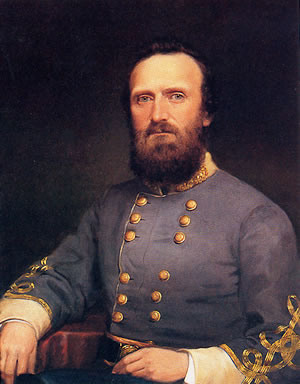
Who was the president of the Confederate States of America?
Jefferson Davis
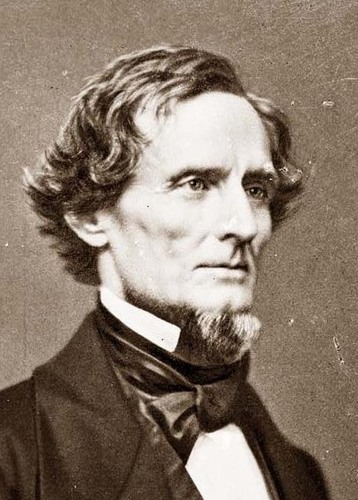
He was the most well-known photographer during the Civil War (took 1,000’s of pics)
Matthew Brady
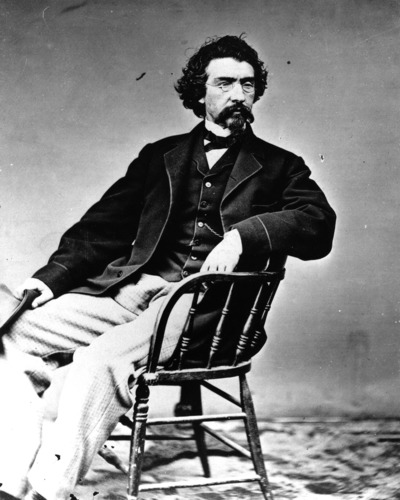
The vocab word meaning "the right to vote”
suffrage
Union General Sherman led 60,000 men in a 285 mile march across Georgia. He instituted TOTAL WAR. Soldiers destroyed bridges and railroads, burned barns and supplies, and caused major fear and panic among civilians. This was called?
Sherman’s March to the Sea
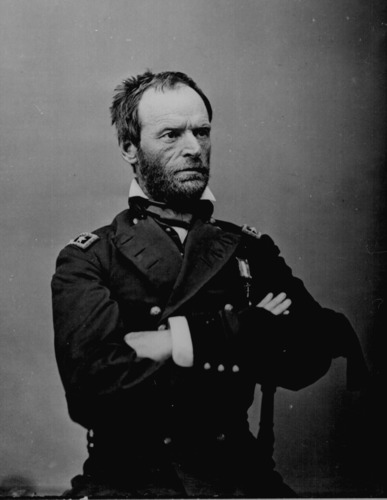
Northern Democrats who opposed the Civil War & sympathized w/ the South; fought against Lincoln, the draft & emancipation.
“Copperheads” / Peace Democrats
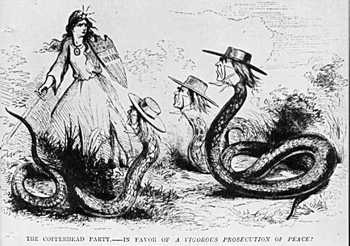
The first ironclad warship commissioned by the United States Navy (the North) and fought at the Battle of Hampton Road (Chesapeake Bay Virginia)
U.S.S Monitor
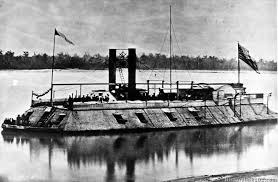
Confederate Ironclad ship that fought in the Battle of Hampton Roads (Chesapeake Bay Virginia)
Merrimac
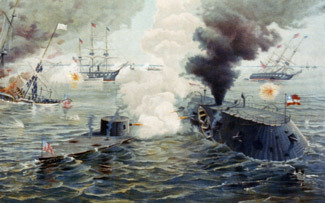
A member of the women’s right’s movement in 1840. She pushed for women’s suffrage at the first Women’s Right’s Convention in Seneca, New York 1848. She read a “Declaration of Sentiments” which declared “all men and women are created equal.”
Elizabeth Cady Stanton
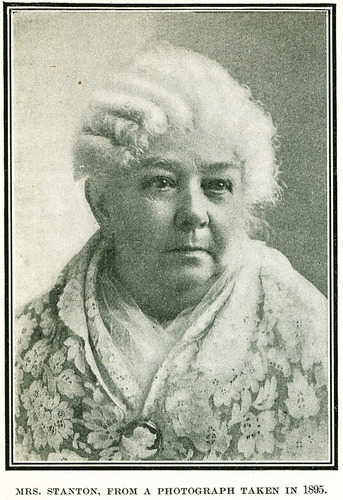
The Kansas-Nebraska Act was a law that stated that these two territories had the power to choose whether or not to have slavery when they became states.
According to our Constitution, the people are the ultimate authority in our government. That is called?
Popular Sovereignty
Once President Lincoln took office in March of 1861, what was his main goal?
To preserve the Union. IN other words, to keep America united.
The first major battle in the American Civil War to take place on Northern soil (Sept. 17, 1862) It was the bloodiest single-day battle in American history, with almost 23,000 casualties.
Antietam
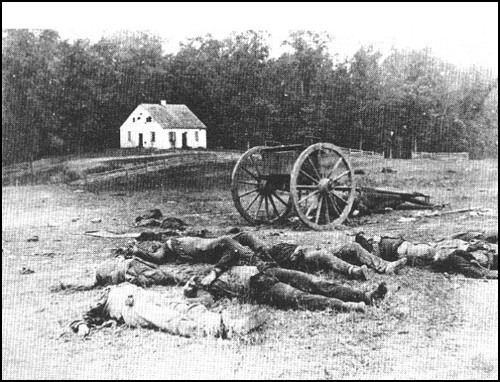
This Civil War battle took place just south of Washington D.C. in Virginia (July 1861). It was watched by women, children, Congressmen, reporters and other civilians while enjoying a picnic.
Battle of Bull Run (Manassas)
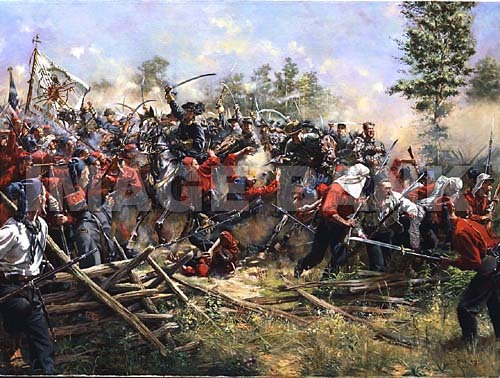
Which Union General had the nickname “Unconditional Surrender”?
Ulysses Grant
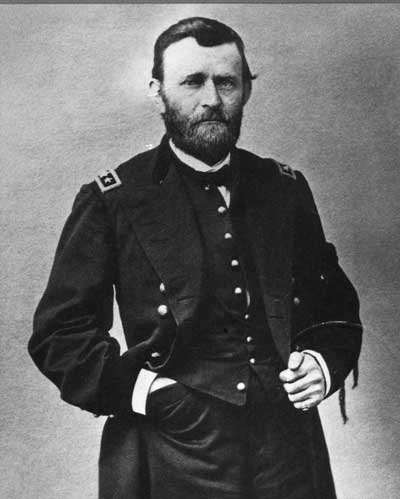
This battle occurred in Pennsylvania July 1-3 of 1863 when Robert E. Lee marched troops into Pennsylvania to try to force an end to the war. BUT, the North wins. This nicknamed the “turning point of the war”
Gettysburg
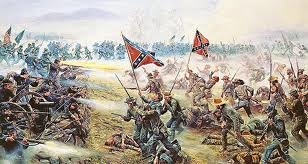
Which anti-slavery political party was created in 1854? Abe Lincoln was a member.
Republican
This was an Africa-American regiment led by Colonel Robert Shaw. The courageously fought at the Battle of Ft. Wagner.
54th Massachusetts Regiment
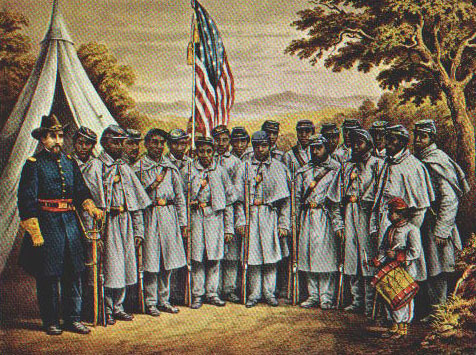
Many Southerners considered slaves a form of property. Therefore, the national government could not take away their “property” without compensation. This idea is found in which of the 10 Amendments (Bill of Rights).
5th Amendment
The Southerners also argued that any power not given to national government is automatically reserved to the states. They felt that slavery was a state issue, not a national issue. State’s rights is part of Amendment #?
10th Amendment
What were the strengths of the Union (North)
1) Larger population
2) Lots of factories/manufacturing
3) More resources: money, food, supplies, etc.
4) Large railroad system
5) Strong Navy/merchant fleet
What were the weaknesses of the Union (North)?
Many people believed the South would Win
It would be difficult to force the South back into the U.S.
The North was divided about what to do (different opinions about the war)
Most battles were in the South (not having home-field advantage
What were the strengths of the Confederates (South)
1) Better military leaders
2) They were fighting a defensive war
3) Strong tradition of military training
4) Home field advantage
What were the weaknesses of the Confederates?
Smaller population
Few factories
Less railways
Delaware, Maryland, Kentucky, West Virginia and Missouri were slave states, but did not secede. They remained part of the United States. They were called?
Border States
Southerners favored freedom of trade & believed in the authority of states over the federal government (State’s Rights). They did not like tariffs. South Carolina declared federal tariff null and void (canceled). They refused to obey.
Nullification Crisis
A taxi on imported goods
Tariff
On the final day of the Battle of Gettysburg, the South launched one final attempt across a mile-wide open field. They faced Union artillery (cannon) on the other side. They fought hard but lost with over 50% casualty rate. This event was known as?
Pickett’s Charge
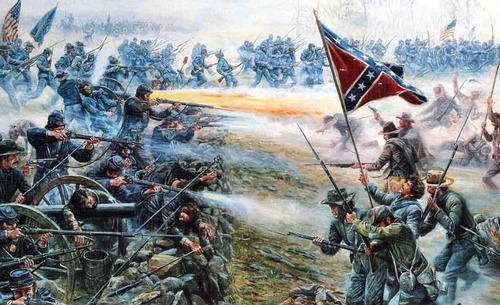
Who was the abolitionist senator whose verbal attack on the South provoked a physical assault (caning) that severely injured him?
Charles Sumner
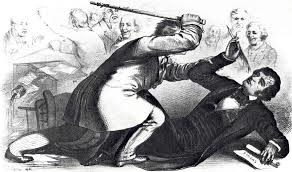
How did the presidential election of 1860 help contribute to the Civil War?
The Republicans nominate Lincoln as their candidate. The Southern Democrats and Northern Democrats could not agree on a candidate, so there were two democrats in the 1860 election. The South feared that Lincoln (being a Republican) would devastate their way of life if elected. No Southern state had Lincoln on the voting ballot. Yet, with more of the population in the North, Lincoln wins w/o the South. Within a month, South Carolina secedes from the Union.